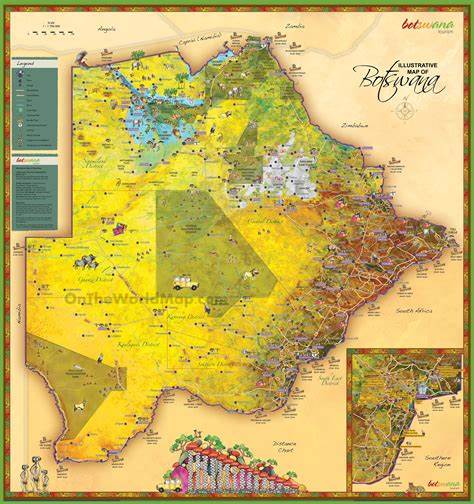Botswana gained independence in 1966 from Britain. It is found right at the centre of Southern Africa. The country is bordered to the north and west by Namibia; to the south and southeast by South Africa; and to the northeast by Zambia and Zimbabwe.
Despite the country's small population size of less than 3 million, it is number 23 in terms of land size among African countries. The Kalahari Desert covers much of Botswana.
As of 2021, Botswana was estimated to hold the second-largest diamond reserves in the world after Russia. With reserves of about 300 million carats, the country's economy has thrived on the stones. It has the largest diamond sorting plant on the continent. Apart from diamonds, the country has deposits of copper, silver, potash, nickel and iron ore.
Livestock raising is an important part of the Botswana economy. The country holds huge tourism potential. The diverse and expansive landscape, flora and fauna are well-known. Botswana is also uniquely known for its stability. The country, unlike many of the continent, has remained stable since self-rule in 1966.
While many have attributed this to the domination of a single major ethnicity in the country's politics, some others have given the marriage between traditional authority and modern authority as the reason for the stability.
The country has over the years built strong institutions that have helped with its stability. There is an effective decentralised system for the administration of rural and remote areas. An independent judiciary has also made the country attractive to investors. It has also built adequate infrastructure.
Recently, the country has made moves towards increasing its direct participation in the domestic industry. While this was initially problematic to De Beers—the dominant firm in the industry—there has been an agreement between the parties.
Issues securitized:
Despite the success story of Botswana, food security, HIV and youth unemployment are among the major issues of concern to the state. The harsh weather condition of the country has made food production unreliable. As a result, the country relies on neighbouring states for food security.
Despite the country and the entire region effectively fighting HIV over several the disease is still the most challenging health issue.
Verdict:
Despite its relatively small population, Botswana's economy is close to $60 billion. This and its physical proximity to larger markets like South Africa and Zimbabwe make the country a go-to one for investors. An improving public health sector shows promise of effectively addressing the health issues of the country—important to the human resource pool.
Its capital is well-linked to the South African economy.
